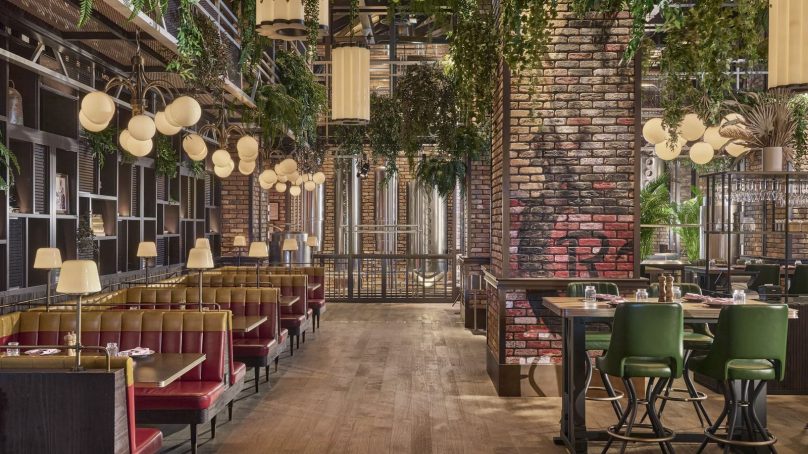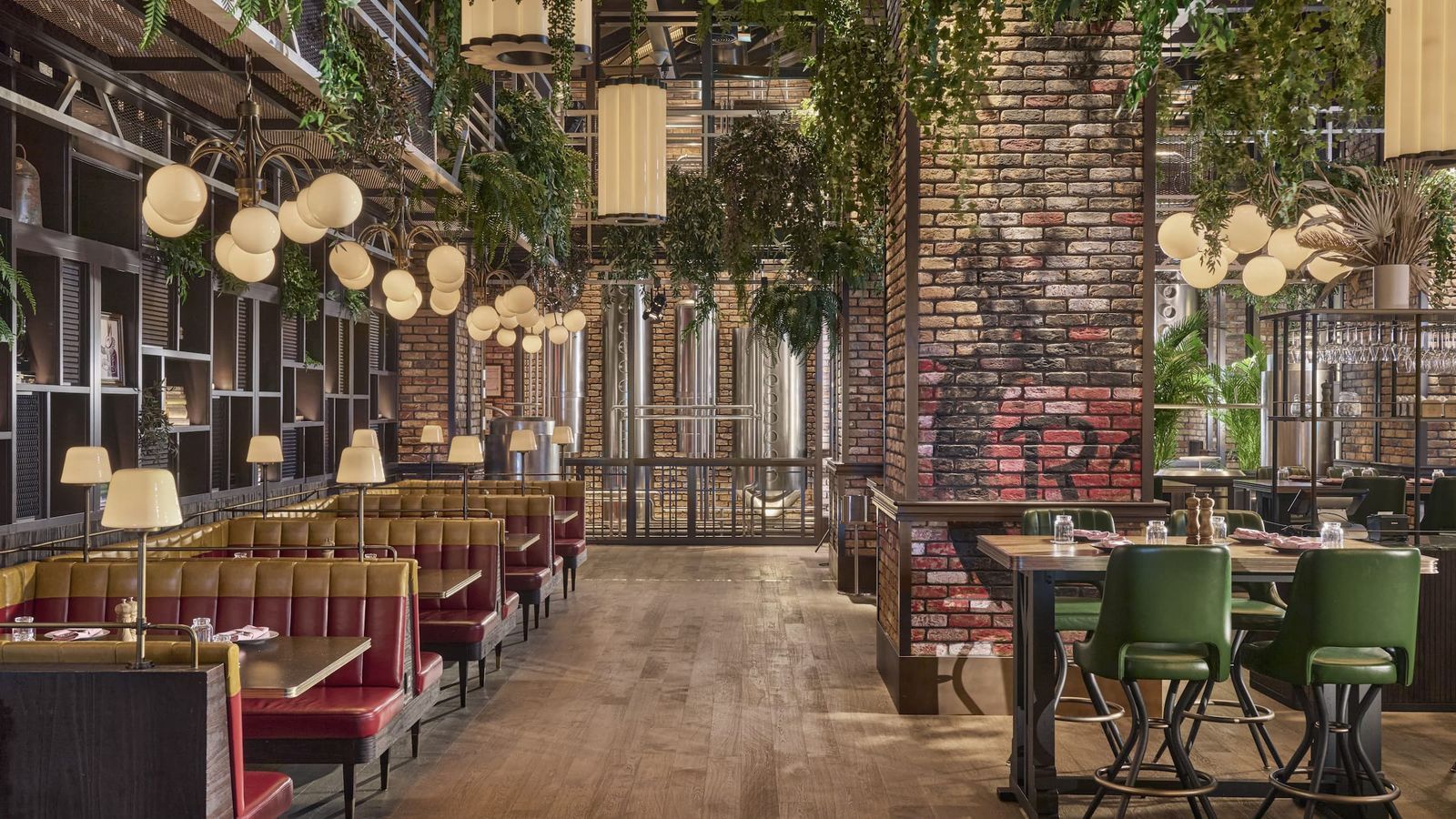

Merging retail, dining and entertainment
As we enter 2025, the ongoing convergence of retail, dining and entertainment continues shaping and redefining the ever-evolving F&B landscape. Consequently, multi-purpose spaces, such as food halls and experiential lifestyle developments, are rapidly gaining traction and becoming increasingly popular among diverse consumer groups.
Furthermore, these innovative venues strategically appeal to mixed demographics by seamlessly integrating recreational and cultural elements with diverse and engaging dining experiences. For example, unique concepts like Top Golf, Swingers, and Five Iron successfully combine entertainment with dining, attracting families, younger audiences and social groups. Simultaneously, this growing trend is significantly impacting the alcohol market, where experience-driven decision-making continues serving as a key influential driver.
F&B as a driver in community developments
Real estate developers are increasingly prioritizing F&B as a crucial cornerstone of community master plans, consequently reshaping urban landscapes and lifestyle experiences. As a result, the percentage of leasable space dedicated to F&B in mega and giga projects has grown significantly in recent years. Furthermore, these large-scale developments strategically position F&B as a primary footfall driver, offering lifestyle-focused concepts that attract and engage modern residents. Moreover, integrating diverse dining options with community living enhances new projects’ overall appeal while simultaneously strengthening the broader and ever-evolving market offering.
The rise of responsible and premium dining
Consumers are placing greater emphasis on responsible dining and premium ingredients, thereby driving a significant shift in modern culinary preferences and expectations. Consequently, traceability from farm to fork has become a critical decision-making factor, with diners actively seeking transparency about their food’s origin. Additionally, there is a noticeable trend toward upgrading to premium ingredients, particularly high-quality meats which enhance dining experiences. Moreover, the stories behind ingredients and their journey resonate deeply with today’s conscientious diners, who genuinely value sustainable practices and ethical sourcing.
Sustainability in F&B
Sustainability is no longer an afterthought but instead a fundamental aspect of F&B concept development, shaping industry standards and consumer expectations worldwide. As a result, operators are increasingly incorporating environmentally responsible practices into their designs and operations as overall consumer awareness continues to grow. Specifically, this includes minimizing waste, sourcing locally, and integrating energy-efficient systems, all of which contribute to a more sustainable business model. These efforts not only align with evolving consumer expectations but also significantly reduce long-term operational costs for businesses in the F&B sector.
Localization and homegrown dining
Homegrown concepts are thriving in the region and this growth is driven by a maturing expatriate market that values authenticity. Moreover, consumers are increasingly choosing to support local operators over global brands, fostering a strong connection. They favor concepts where they can connect with the faces behind the business, further enhancing their experience. Pioneers like Gary Rhodes have paved the way, inspiring regional brands like Orfali Brothers and Reif Othman to gain support. This movement reflects a deeper appreciation for local craftsmanship and a collective desire to celebrate the region’s culinary evolution.
Experiential dining
“Eatertainment” is a growing force in hospitality, combining dining with activities and entertainment. These spaces cater to a wide audience, offering something for everyone; therefore, they ensure broad appeal. Families, in particular, appreciate venues where children can be entertained while parents enjoy a meal. Food halls remain at the forefront of this trend, presenting diverse dining options in dynamic, interactive environments. For instance, they attract various patrons. Such concepts not only meet consumer demand but also provide operators with scalable opportunities for engagement and, ultimately, long-term success.
The F&B sector is entering a period of transformation, driven by consumer preferences, technological advancements and sustainable practices. Furthermore, operators and developers who embrace these trends will not only unlock new opportunities but also solidify their positions. Thus, by creating inclusive, responsible and experiential offerings, the industry can continue to thrive and evolve.

Richard Cowling,
director of operations at Gates Hospitality
gateshospitality.com
@gateshospitality















